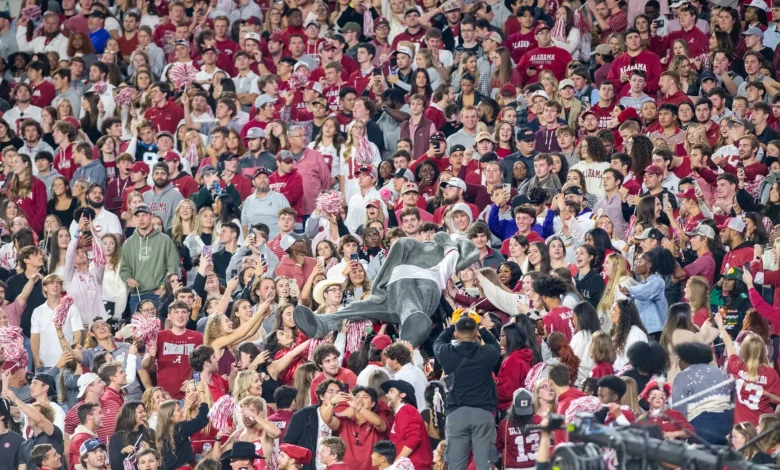How Bryant-Denny compares to Tiger Stadium’s home-field advantage in LSU-Alabama rivalry

On Saturday nights in Baton Rouge and autumn afternoons in Tuscaloosa, the South sounds different.
In Tiger Stadium, it’s a roar that shakes concrete. In Bryant-Denny, it’s a rhythm — a Crimson Tide of noise rolling in waves. One is chaos, the other control. Both are home to college football’s most faithful fans.
Tiger Stadium opened in 1924, originally built to house 12,000 fans, and was a dream that football could unite Louisiana. Today, it holds 102,321, each seat layered with a century of noise.
What began as dorms beneath concrete bleachers has become one of the world‘s largest stadiums — a fortress above the Mississippi River that swallows sound and spits out intimidation.
Bryant-Denny came five years later in 1929, when Alabama president George H. Denny envisioned this campus centerpiece. The name grew to honor Paul “Bear” Bryant, the man who made Alabama football mythic. Saban Field at Bryant-Denny Stadium sits in the heart of Tuscaloosa, wrapped in brick, banners and legacy.
And somewhere between Baton Rouge and Tuscaloosa stands Nick Saban — the coach who turned both houses into temples. He delivered the LSU national championship in 2003, then built an empire at Alabama that defined the modern game.
Few figures understand both Death Valley and Bryant-Denny better than the way Saban does, because he built each into what the other fears.
Tiger Stadium breathes differently. The day is built slowly, the smell of gumbo rising from the parking lot, brass bands cutting through the crowd, purple and gold folding into dusk.
By kickoff, the noise has a pulse. The Golden Band from Tigerland marches down Victory Hill, “Callin’ Baton Rouge” echoes across the bowl and Death Valley comes to life.
Tuscaloosa comes with precision. The Walk of Champions leads players through fans in crisp waves of Crimson. The Million Dollar Band swells, and Bryant-Denny fills with sounds of expectation. When “Rammer Jammer” closes out another win, it’s a ritual, polished and seemingly inevitable.
Bryant-Denny’s nickname, “The Capstone,” ties back to the university’s role as the crown jewel of Alabama’s public education system.
Both fan bases worship the same gospel: commitment, noise and belonging.
In Baton Rouge, they say Death Valley is where dreams go to die. In Tuscaloosa, they say it’s where titles are born. The truth lies somewhere in the echo, somewhere between the hum of hatred that seems to never die.
This weekend, the Tigers will head to Tuscaloosa to face the Crimson Tide with interim head coach Frank Wilson at the wheel. Expectations seem low in the public eye, but the Tigers are all in.





